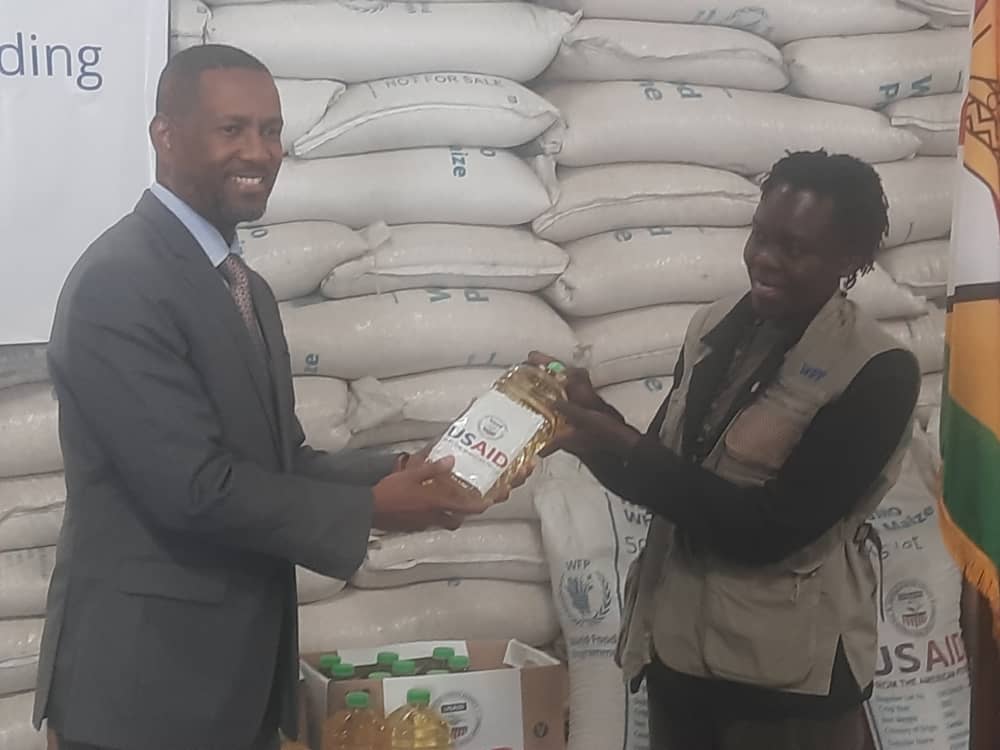|
Getting your Trinity Audio player ready…
|
Writes Evans Muranganwa
Humanitarian agency, World Food Programme has received US$8.7 million for its 2023 Food for Assets programme from the United States government through USAID.
Speaking at the handover ceremony, USAID acting mission director Mr. Ramses Gauthier said the donation will help food-insecure households in Rushinga, Masvingo, Kariba, Mwenezi and Zvishavane.
“I am honoured to announce that the United States government through USAID will provide the World Food Programme with US$8,7 million dollars for the 2023 Food Assistance for Assets Program.
“From May to October, this assistance will support approximately 66,000 food-insecure rural Zimbabweans in Rushinga, Masvingo, Kariba, Mwenezi, and Zvishavane,” the acting USAID mission director said.
He said the donation will help beneficiaries to avert the dire effects of climate change.
” The most vulnerable and food insecure people in Zimbabwe often live in fragile, resource-scarce, and degraded environments in areas prone to climate disasters where they are exposed to frequent shocks. These are the communities we will reach with the Food for Assets programme, “he added.
The United States NGO has ‘supported the creation of almost 2,000 community assets across Zimbabwe including small dams, fishponds, dip tanks, pens used for cattle sales, irrigation systems, spring protection works, feeder roads, nutrition gardens, and many other food-security related community assets’.
This year alone, WFP has received US$193 million from USAID.
The WFP deputy country director and officer in charge Mrs. Christine Mendes elated with assistance from USAID said her organisation is investing in resilience building among vulnerable communities.
“WFP’s Food Assistance for Assets (FFA) addresses immediate needs through food distributions while investing in productive assets that improve long-term food security and resilience, including soil and water conservation. Participants are also trained in insurance and financial inclusion, food processing, and connected to nearby markets.
“The community-centered approach promotes nutrition, gender equality, and social protection,” WFP acting country director, Christine Mendes.
She further said, “More than 1.2 million have benefited from WFP’s Food Assistance for Assets across 30 districts in Zimbabwe since 2012.Among others, WFP and its partners have supported the establishment of 395 small dams, 79 irrigation systems, 520 hectares of vegetable gardens and 66 boreholes (42 of which are solar).
“As food security improves, communities continue building assets on their own. This contributes to building longer-term food security,”.
Last year, Zimbabwe Vulnerability Assessment Committee (ZimVAC) projected that 3.8 million individuals shall be food insecure at the height of the lean season (January to March 2023).
